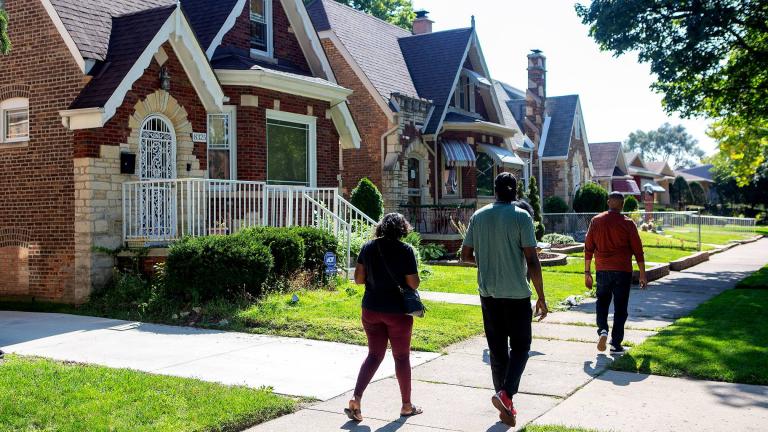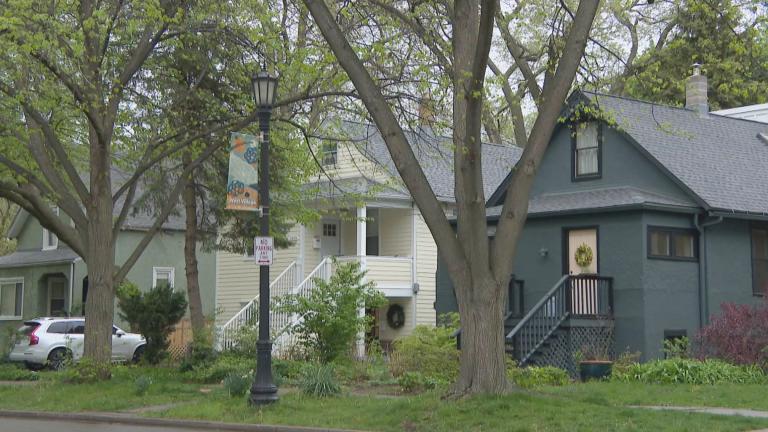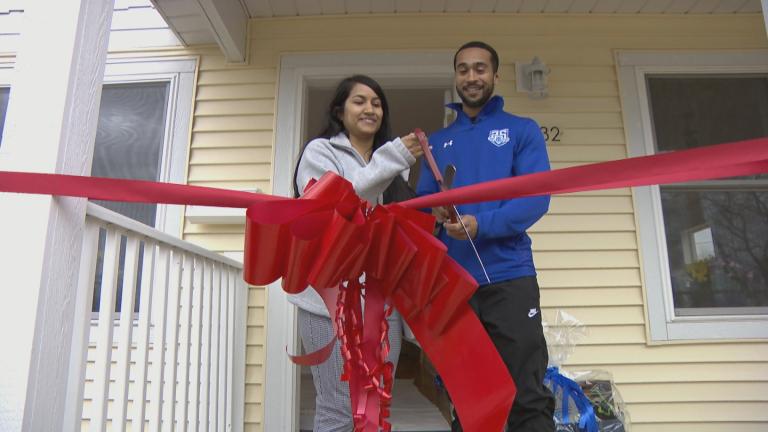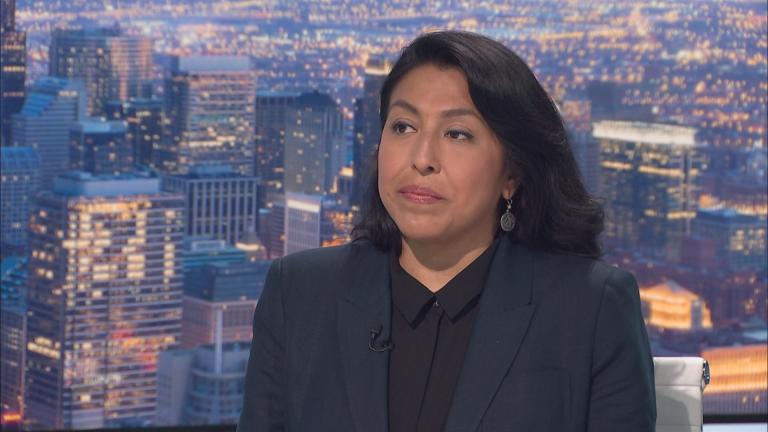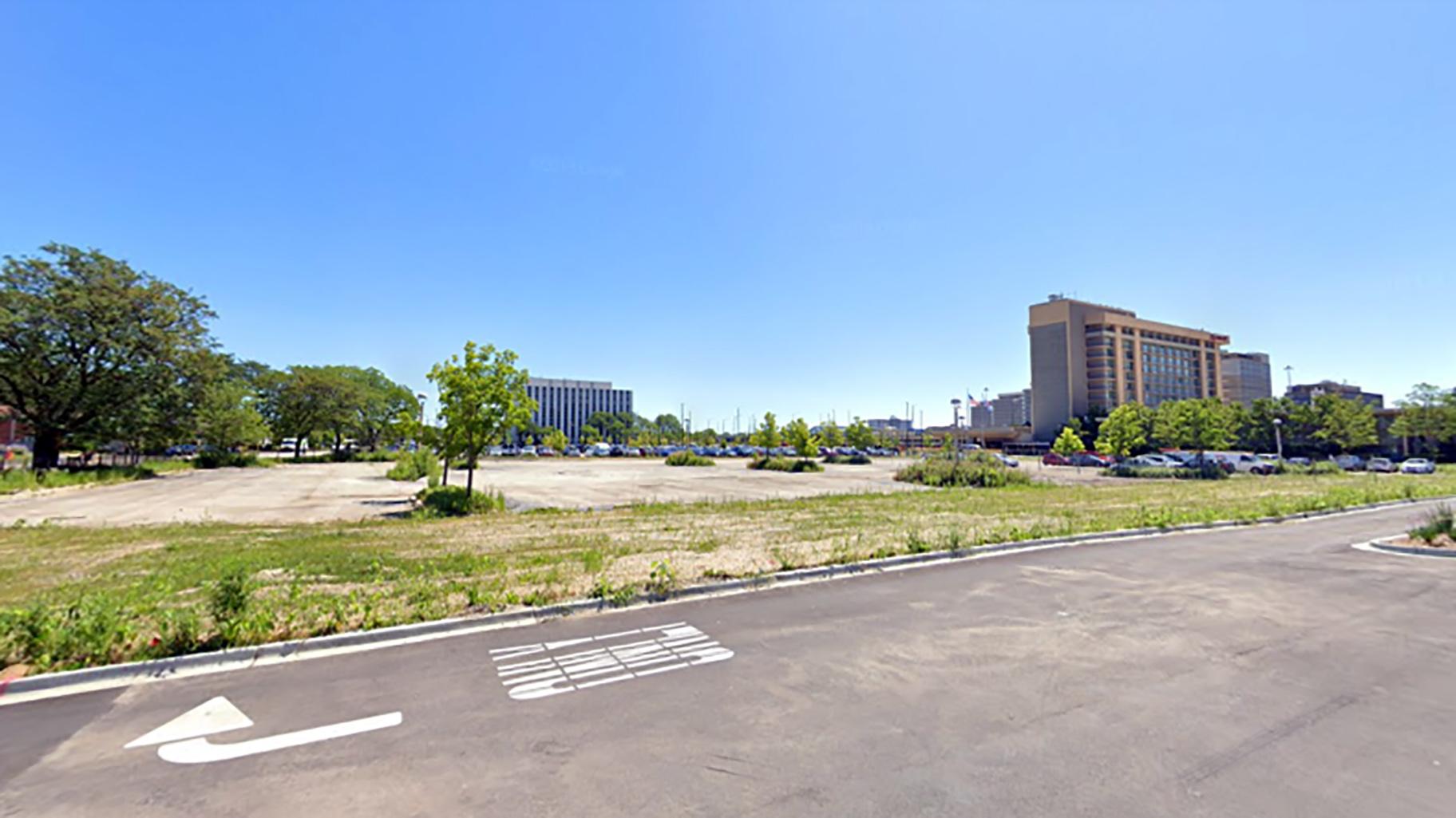
A proposal to build an apartment complex with 297 units — including 59 set aside for low- and moderate-income Chicagoans — in one of Chicago’s wealthiest neighborhoods advanced Tuesday, despite the opposition of the area’s alderperson.
The 12-5 vote by the City Council’s Zoning Committee sends the proposal from Glenstar at 8535 W. Higgins Road amid a cluster of hotels and office mid-rises along the Kennedy Expressway near O'Hare Airport and steps away from the CTA Blue Line to the full City Council meeting set for Wednesday.
The vote represents a nearly unprecedented rebuke of the decades-old tradition of giving alderpeople the final say over housing developments in their wards. Critics of that practice, which is the subject of a federal probe, contend it has created a hyper-segregated city rife with racism and gentrification.
Mayor Lori Lightfoot said the development would provide much-needed housing for those who work at the airport and help fuel "a key Chicago economic engine."
"The development is also an important step toward addressing Chicago’s longstanding racial and economic segregation," Lightfoot said.
The City Council’s reconsideration of the project, which it rejected in 2018, comes amid a probe by the U.S. Department of Housing and Urban Development. Federal officials are investigating a civil rights complaint filed in November 2018 by housing advocates that alleges that the use of aldermanic prerogative to block affordable housing has fueled deep economic and racial divides in Chicago.
Ald. Anthony Napolitano (41st Ward) pleaded with his colleagues during Tuesday virtual meeting to uphold aldermanic prerogative and defer to him and the opinions of homeowners in Edison Park and Norwood Park on Chicago’s Far Northwest Side, where more than 80% of residents are white.
With the support of one other alderperson, Napolitano could block a vote on the measure Wednesday, sending the debate into 2022.
Napolitano said approving the proposal would mean a “complete overstep” of his power as an alderperson and warned his colleagues that they could see their power in their wards reduced in a similar way. That is the essence of the largely unwritten practice of aldermanic prerogative.
“Today, it’s a commercial (property) that’s being forced into being changed to residential in 41,” Napolitano said. “Tomorrow, it may be residential into manufacturing in your ward. Today, I’m sitting in the hot seat. And you may like me, you may hate me. But your decision will definitely reflect the precedent when you are sitting in the hot seat tomorrow. This is a complete overstep of our office. This is a complete overstep of what our ward wants.”
Ald. Maria Hadden (49th Ward) said that while she supported the development, it was an “uncomfortable” vote to take because of Napolitano’s opposition.
Napolitano presented a litany of concerns about the proposal, and said the Higgins corridor, on the border between Chicago and Park Ridge, should remain focused on attracting businesses rather than residents.
In addition, Napolitano — the only member of the Chicago City Council who is not a member of the Democratic Party — has blasted the complex as too dense for the Far Northwest Side, adding that it would cause overcrowding at a nearby school that was recently expanded, snarl traffic and hurt struggling "mom and pop landlords."
However, Department of Housing Commissioner Marisa Novara urged members of the committee to support the development, saying that the city was grappling with a massive shortfall of affordable housing and every neighborhood had an obligation to help meet that need.
Because the Glenstar development needs special permission to build apartments on land where current rules require only office space to be constructed, it must set aside at least 30 units, or 10% of the total number of apartments, for low- and moderate-income Chicagoans.
Instead, the development will set aside 59 units, double the requirement, and officials will forego options to pay a fee instead of building the units or building them elsewhere. The rest of the units will be marketed at $1,600 per month for a studio and $2,000 per month for a one-bedroom, officials said.
Studio units set aside as affordable would rent for as little as $653, according to the developer.
Representatives of Glenstar told alderpeople that the demand for office space has cratered amid the continuing COVID-19 pandemic and the rise of remote work.
More than two years after Lightfoot took office, progress on her central campaign promise to root out aldermanic prerogative has advanced only in fits and starts, pushed to the back burner by one crisis after another and the COVID-19 pandemic.
Even after Lightfoot rolled back the ability of alderpeople to block — or green light — licenses and permits in their wards, a majority of the Chicago City Council repeatedly brushed back Lightfoot’s attempts to give department heads and commissioners more authority.
Lightfoot has made no attempt to propose citywide changes to the city’s zoning code, where the heart of aldermanic power lies. A decision by the City Council to approve the apartment complex near O’Hare despite Napolitano’s opposition could set a precedent that breathe new life into that effort.
Contact Heather Cherone: @HeatherCherone | (773) 569-1863 | [email protected]

